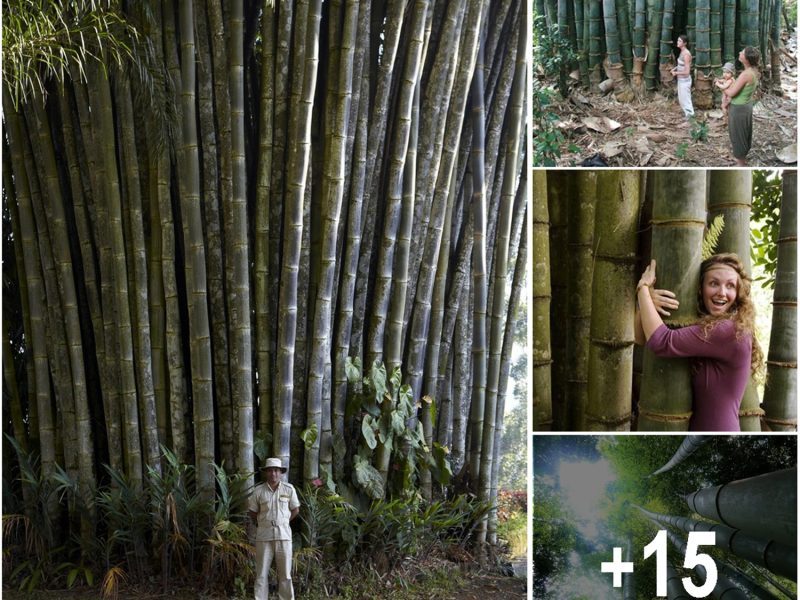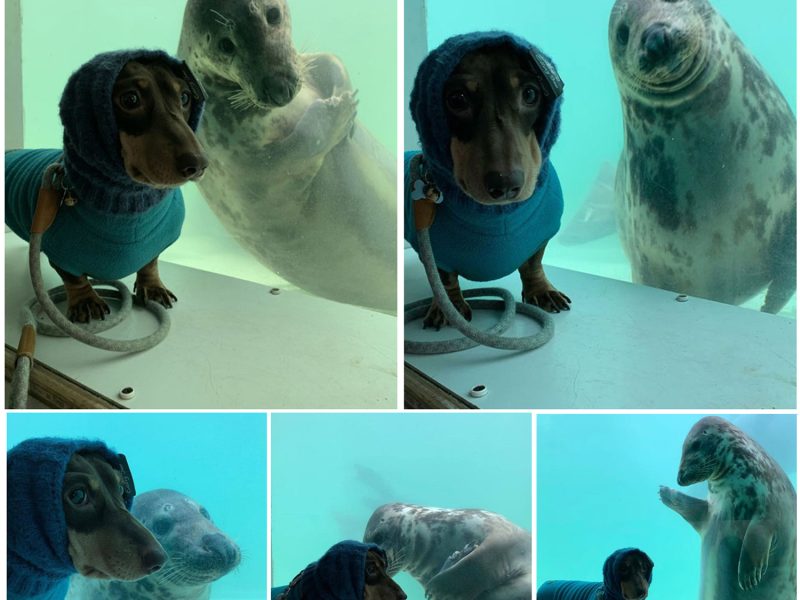This Poo-caso specializes in turning crap into gold.
Calling someone’s art crappy may seem like a value judgment. However, German artist Werner Härtl, 45, specializes in creating elaborate paintings out of cow dung — which he proudly showcases for fans like a veritable da Vinci of doo-doo.
“I just use cow manure to create my art,” the would-be Dung-atello told Caters News of his smelly medium, which actually isn’t as odoriferous as one would suspect.
“When it is wet, the ‘paint’ is a bit funky,” Härtl said to Ripley’s Believe It or Not! in 2022. “But when it’s completely dry, it doesn’t smell anymore.”
The artist, who lives in Reichersbeuern, Germany, claims his foray into feces-based art came serendipitously 10 years ago, after he noticed how hard the cow manure was to clean off his barn.
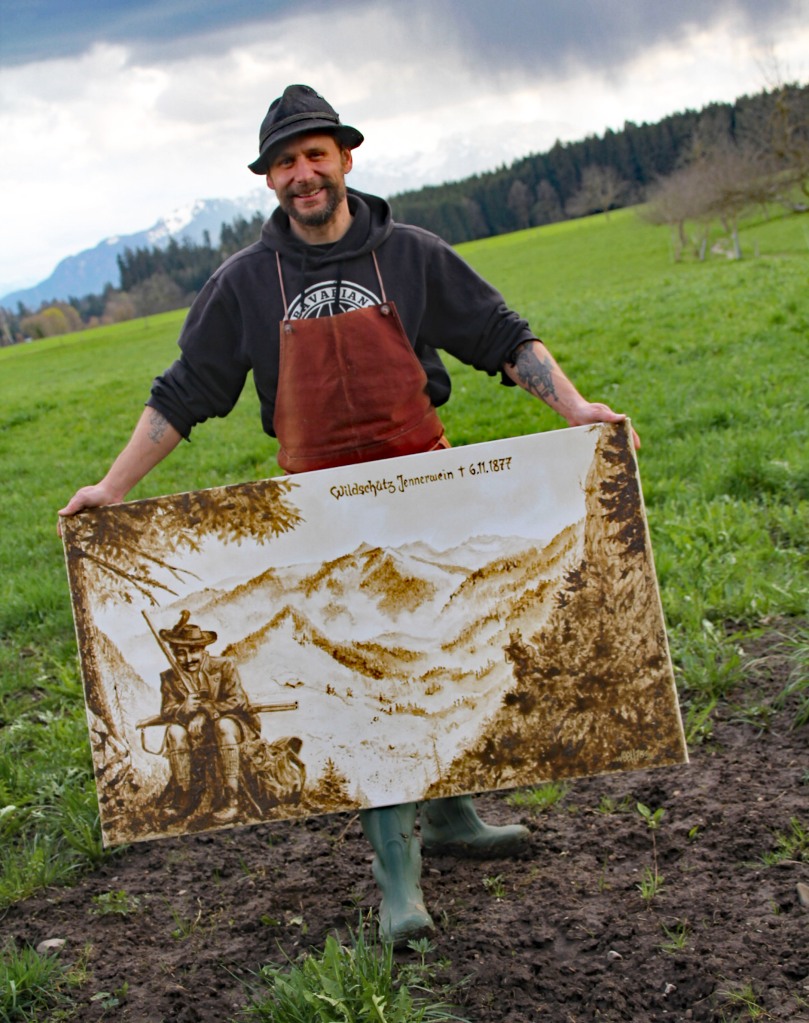
Lisa Steinbacher/ CATERS NEWS
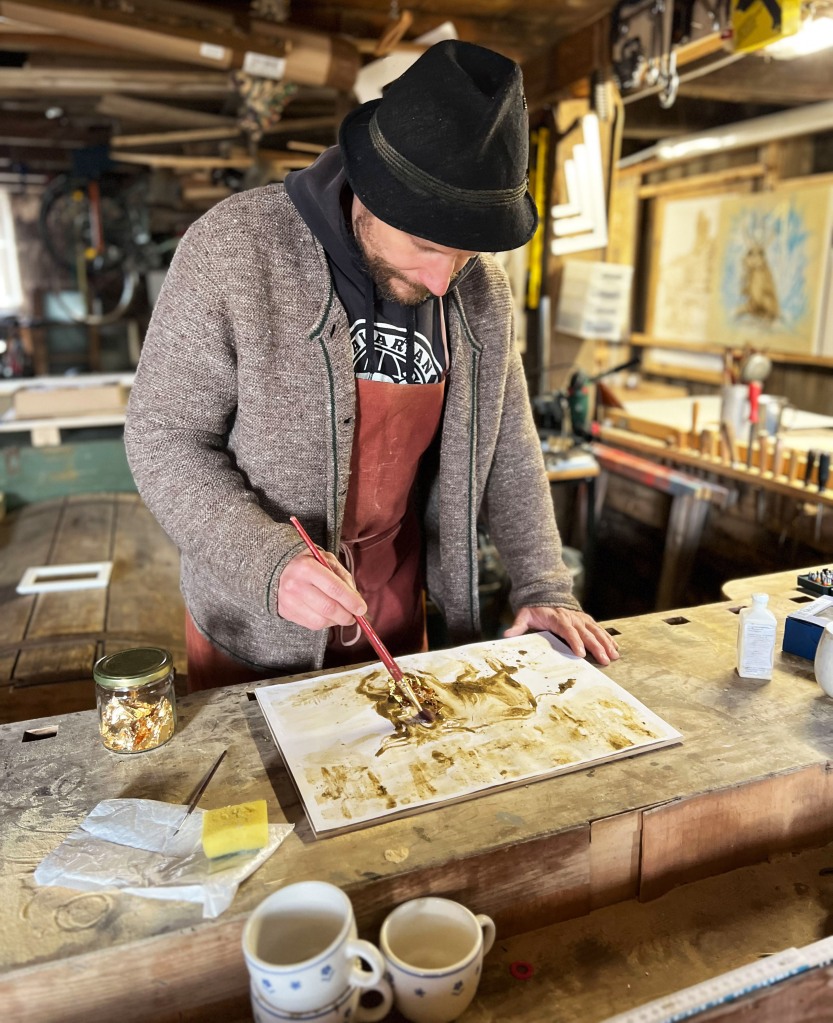
Lisa Steinbacher/ CATERS NEWS
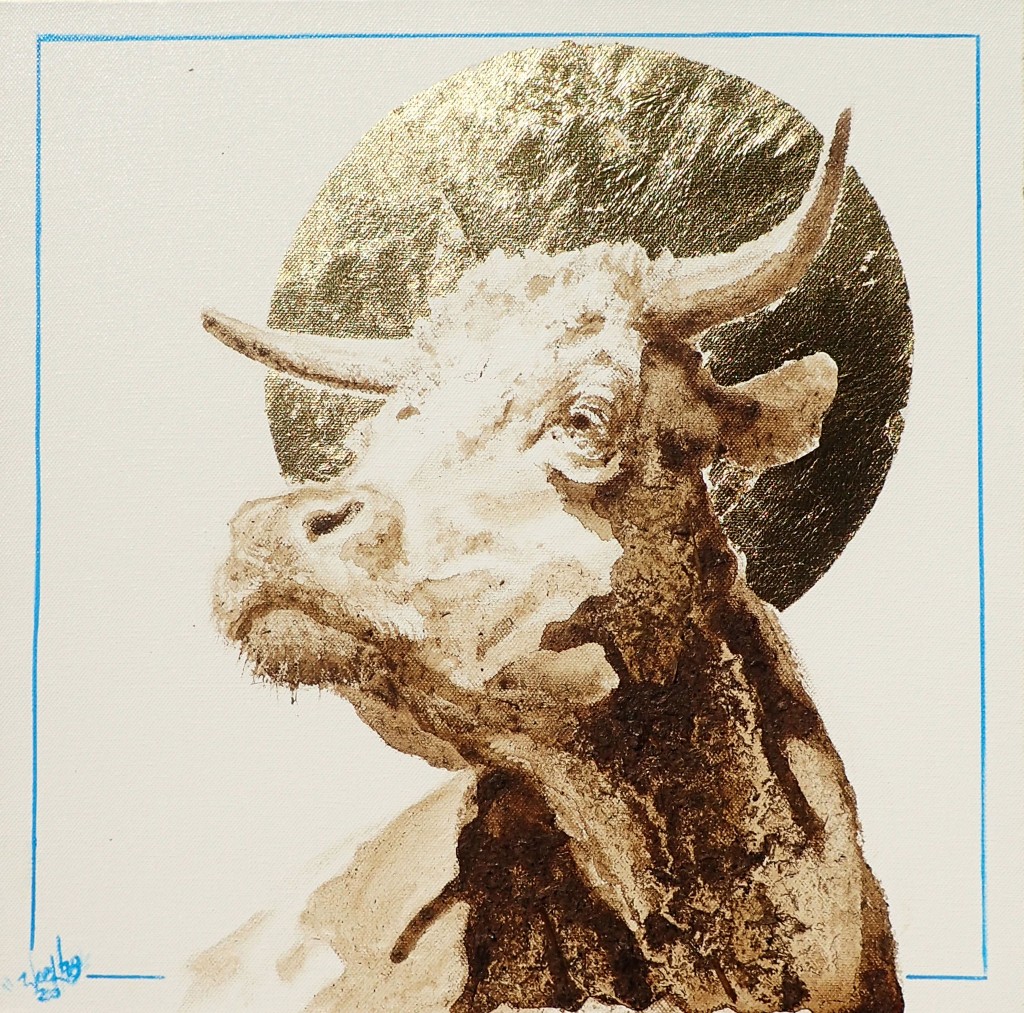
Lisa Steinbacher/ CATERS NEWS
While most may have balked at the discovery, Härtl was impressed with the adhesive and coloring properties and decided to start experimenting with the excrement.
“It has the perfect texture, because it’s just fermented grass,” exclaimed the manure maestro, who has created over 1,000 crap-estries since he started. His malodorous opuses have entailed everything from hyperrealistic pastoral landscapes to, perhaps most fittingly, portraits of his cows, the makers of his palette.
How does one create a scatological masterpiece? Härtl starts harvesting the “paint” like a bizarro bovine milker.
“Well, I fetch the cows’ droppings with a canister as soon as they lift their tails,” the would-be Jackson Poolock explained. “Around two bowel movements deliver enough for half a year of creativity.”
In other words, cow pies are not just a sustainable fuel source, they also have the potential to power the sepia-toned art world.
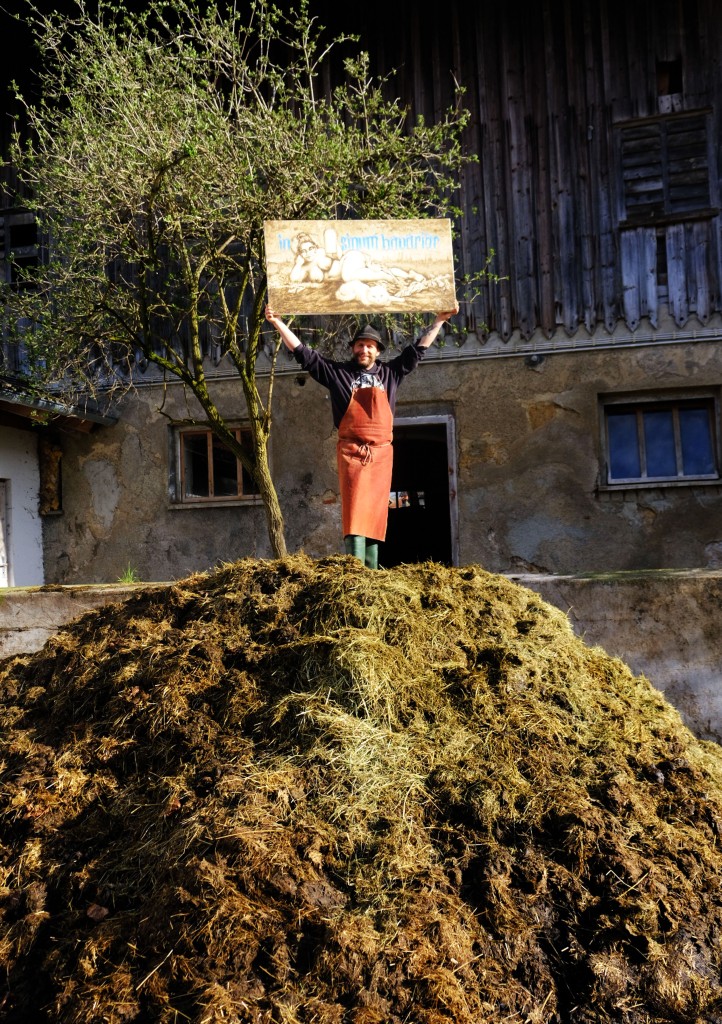
Lisa Steinbacher/ CATERS NEWS
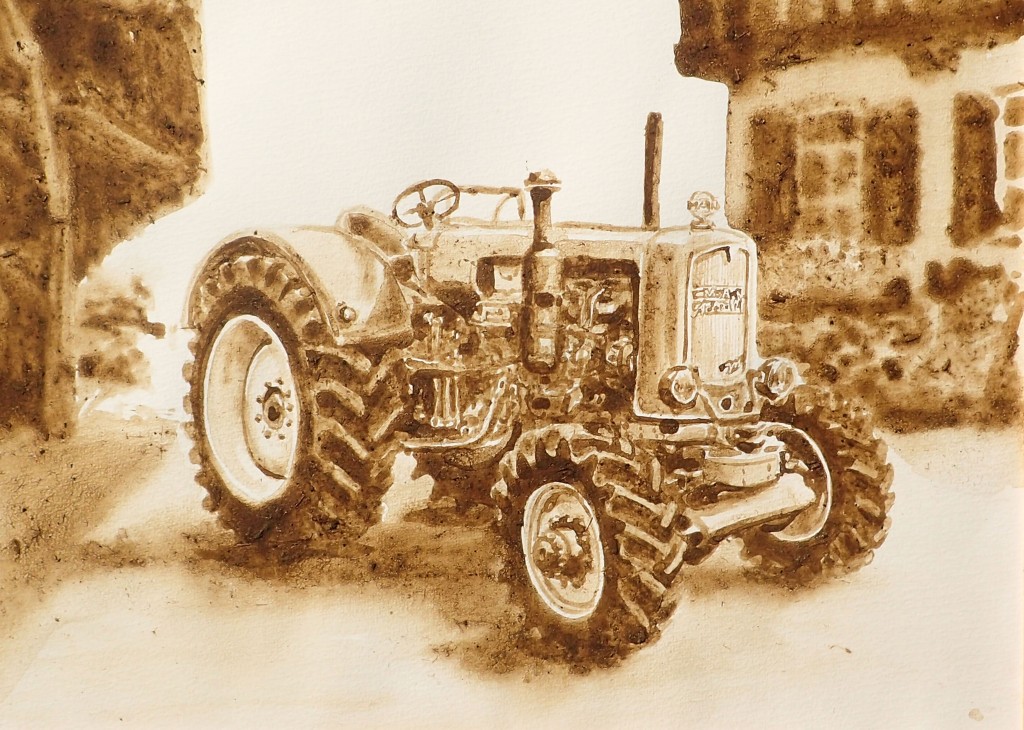
Lisa Steinbacher/ CATERS NEWS
Next, Härtl uses water “to dilute the dung and achieve different shades” before painting it on canvas with brushes or knives like a watercolor work.
“I start scribbling using very dry, gentle brushstrokes,” he said. “Then, I use watered-down dung for light shades. Finally, I use dung with no water mixed in for the dark shades.”
The excremental expressionist says he works in “layers,” as there are “different drying times depending on the consistency of the dung.”
The only downside to working with manure is that the dung has a lot of detritus. “There are so many sticks, straws, clumps, even sand and insect particles in it, so it can be difficult to handle,” Härtl lamented.
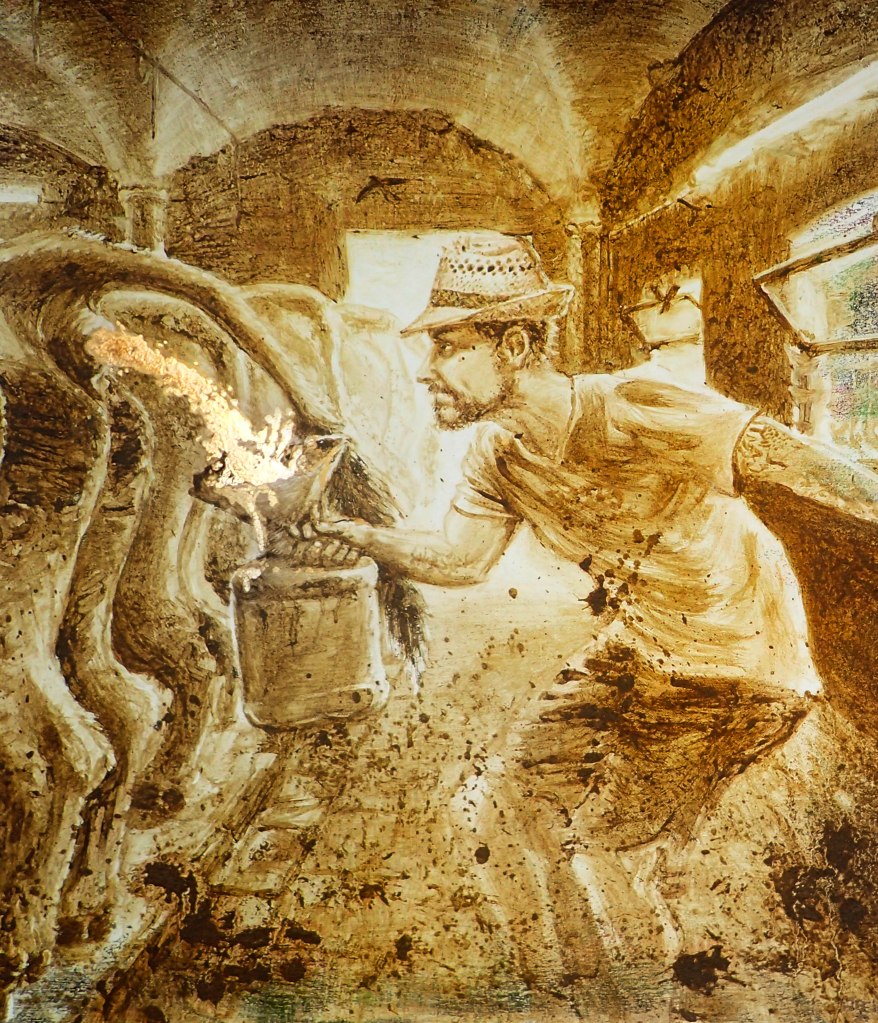
Lisa Steinbacher/ CATERS NEWS
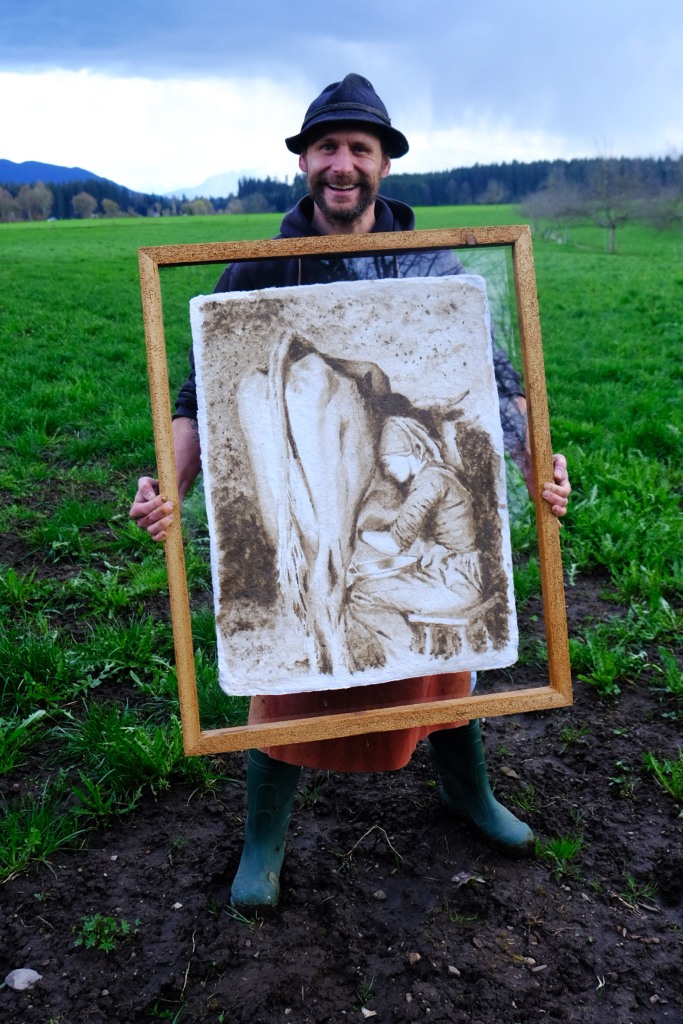
Lisa Steinbacher/ CATERS NEWS
Naturally, some might view working with cow poop as unsanitary; however, Härtl claims that he doesn’t “see any health or hygienic issues.”
“According to clinical studies in 2003, cow manure contains bacteria that’s healthy for humans,” he declared. “It strengthens the immune system and stimulates the production of serotonin.”
However, experts advise against handling cow dung as it can contain E. coli and other pathogens as well as various parasites, SFGate reported.
What’s not in dispute is the medium’s sustainability — which Härtl hopes to illustrate through his work.
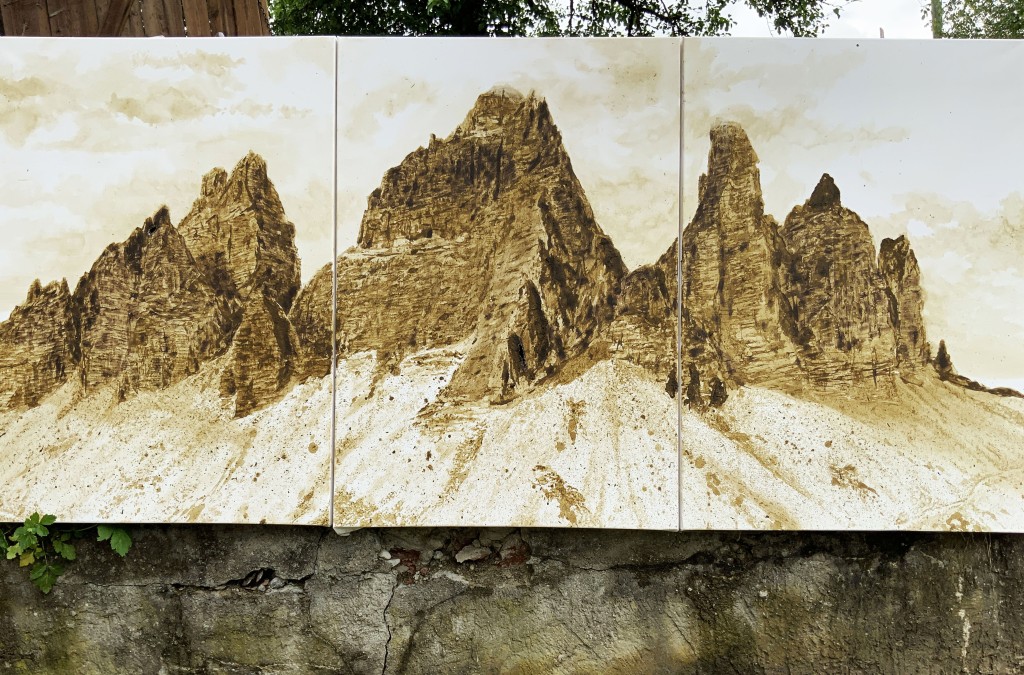
Lisa Steinbacher/ CATERS NEWS
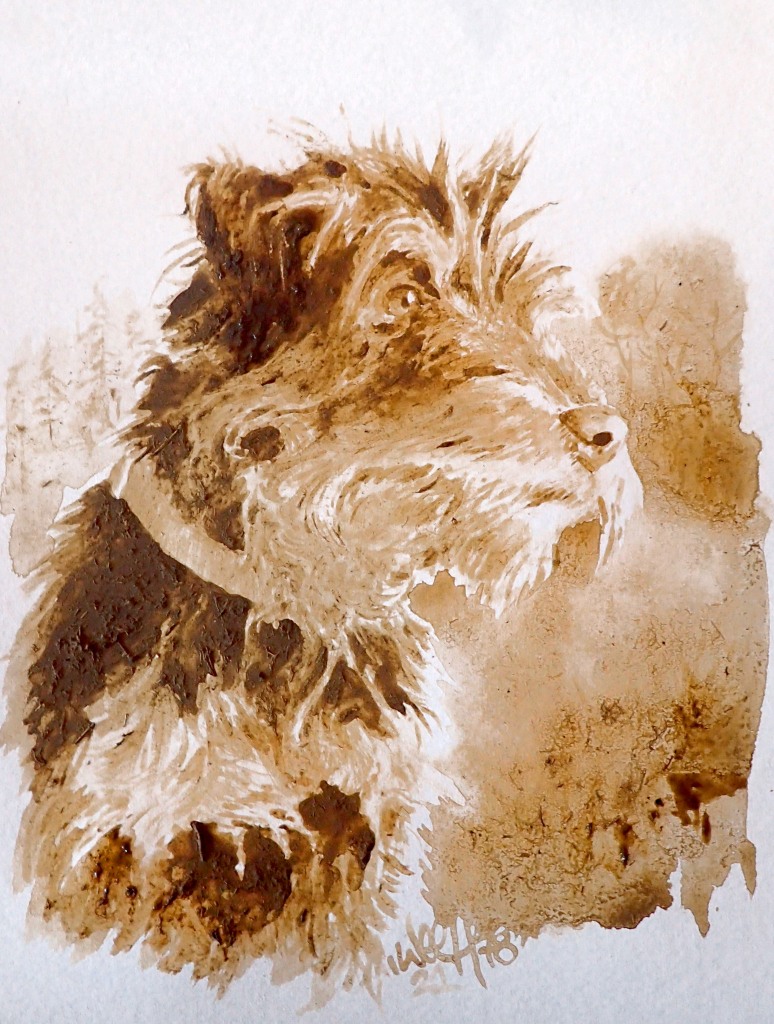
Werner Härtl’s portrait of a pup, painted with cow dung.
